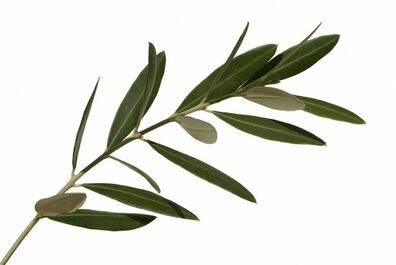|
Taking a pro-active approach to your pet’s health is one of the best decisions you can ever make as a pet guardian. One area to never neglect of course, whether you choose natural or otherwise is de-worming. When dogs and cats are fed a species appropriate diet they become a not so ‘inviting’ host for parasites to thrive on, that being said, it is still very possible and probable to collect parasites along the way and in that case: consider olive leaf extract. But first, lets talk about the overall benefits, as that alone has several impressive studies to back this antioxidant rich powerhouse. Olea europaea has been around since the biblical times, in fact, the olive plant is referenced several times in the bible. Both olive leaf and oils are found to have high concentrations of phenolics, tocopherols, flavonoids, antioxidant power, and the leaves also contain chlorophyll and carotenoid concentrations. The study also concluded that by adding olive leaf to the oil it progressed it’s shelf life thanks to its uber antioxidant properties, “The enrichment of the oils with antioxidant compounds from the leaves also led to a remarkable increase in the nutritional quality of the Oueslati oil… …In conclusion, the addition of a small percentage of olive leaves could improve the nutraceutical properties of extra virgin olive oil by increasing the phenolic compound content. These compounds, together with tocopherols, play a protective role against oxidative stress, being also able to extend the extra virgin olive oil shelf-life due to their antioxidative properties.” (Tarchoune, Sgherri, Eddouzzi, Zinnai, Quartacci, Zarrouk. U.S. National Library of Medicine, 2019). So, what does this all mean for our beloved pets? Olive leaf proves to show its anti-inflammatory, antioxidant, cardioprotective, anticancer, antidiabetic, antiparasitic, antiviral, antibacterial, antifungal and neuroprotective properties- just to name a few! Another study proved that both inflammatory and cancer cell models show that olive leaf polyphenols are anti-inflammatory and protect against DNA damage initiated by free radicals. Animal studies prove, “It has been associated with numerous health benefits including the ability to: lower blood pressure in rats, decrease plasma glucose concentrations in rats, inhibit the growth of microbes grown on agar plates, inhibit cultured parasitic protozoans and has also shown the ability to induce apoptosis in cancer cell models: colorectal, breast and prostate.” (Boss, Bishop, Marlow, Barnett, Ferguson. U.S National Library of Medicine, 2016). Another good thing to note is that OLE only kills the harmful bacteria, not the good, and is proven to be a great source to combat yeast (candida) infections (yeast buildup in ears, mouldy 'cheesy' smell, greying skin, itching, yeasty paws, etc.) One should also take care to get OLE from a good and reputable source as not all herbs and supplements are created equal, and to dose accordingly, because as we all know, too much of a good thing can end up not being a good thing. It is best to treat OLE like medicine, in the right dose it will do the trick, but too much medicine is, well, too much medicine. OLE can be an integral part for any deworming protocol however, it is always best to speak with your vet/ holistic vet when introducing something new to your pet. We at Thrive4life Holistic Pet stand by only quality products, ensuring you that only the best is provided for your beloved four-legged member of the family.
0 Comments
Leave a Reply. |
AuthorLucy is an avid pet mom; with dogs, cats, goats and horses to keep her busy! All of her pet 'kids' are fed a species appropriate diet with proper supplementation so she can watch them thrive. Her expertise and experience lie in nutraceutical supplementation and is a health advocate for proper diet and nutrition. Her other passions in life are schutzhund and equestrian riding. Archives
July 2024
Categories |



 RSS Feed
RSS Feed